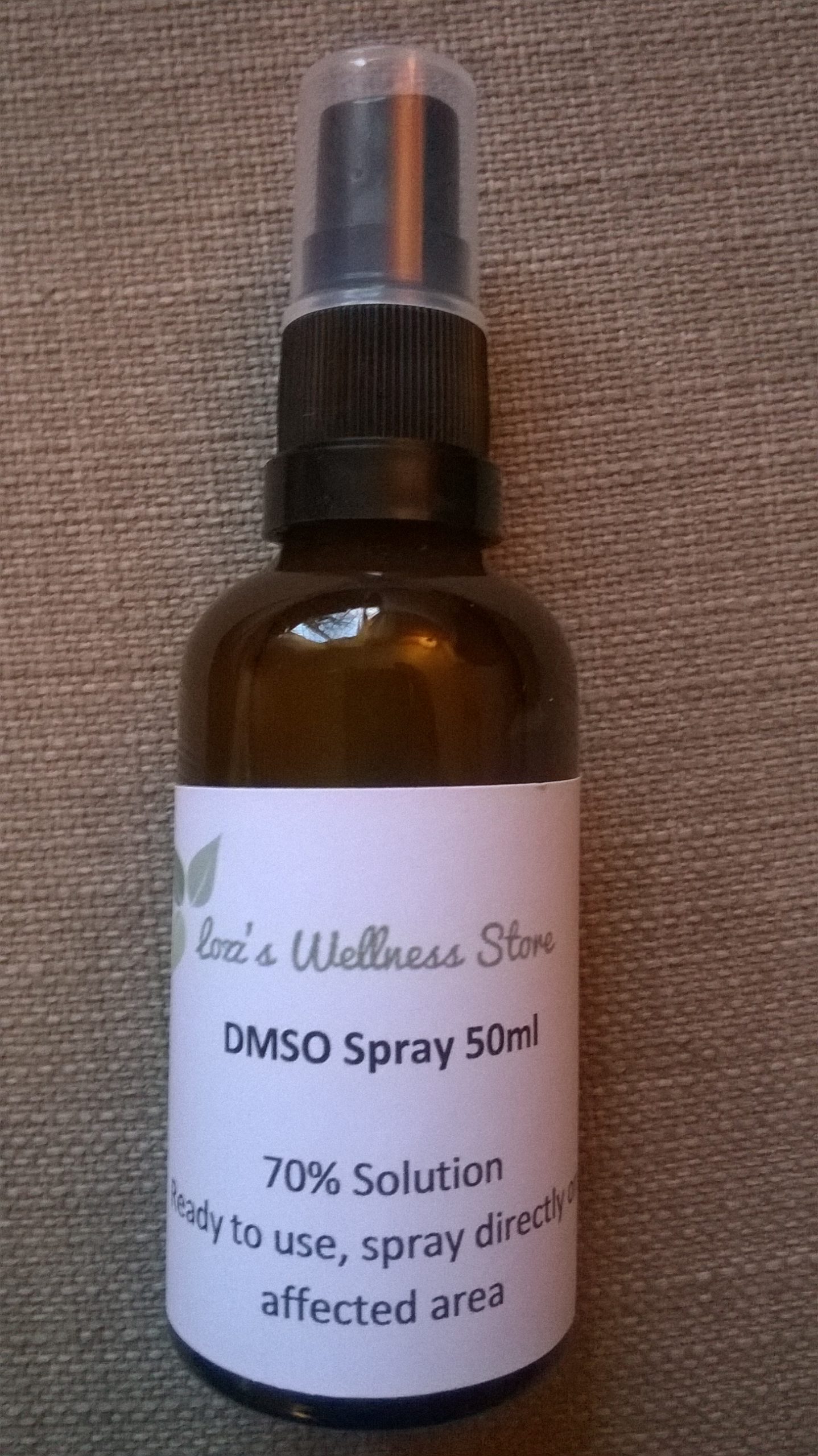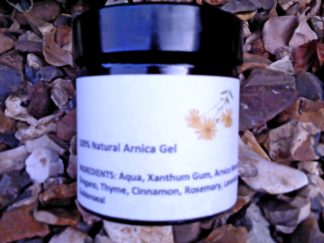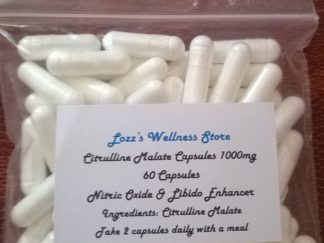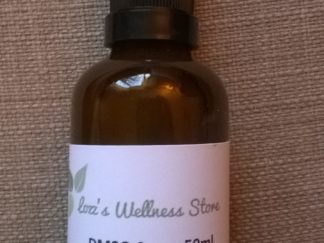Description
DMSO can help to reduce pain and inflammation and also prevent the symptoms of interstitial cystitis…
Dimethyl sufoxide (DMSO) is an organic sulfur-containing molecule that can dissolve polar and non-polar molecules. This means that DMSO can dissolve both fat-based and water-based substances, making it easily absorbable in the human body. It is commonly used to reduce pain and speed healing in the body.
DMSO
DMSO can help to relieve local pain and swelling in skin and joint inflammations.
Natural health practitioners commonly recommend DMSO for the treatment of: Interstitial Cystitis, Osteoarthritis, Rheumatoid Arthritis, and painful skin conditions like Shingles, bunions, and scleroderma.
DMSO and MSM
In the human body DMSO is naturally converted to MSM. It is still unclear if this is the cause of its beneficial anti-inflammatory and pain-killing effects. Some practitioners will recommend using MSM instead of DMSO, although there is no research comparing the two. For more information, please see our MSM article.
Interstitial Cystitis
Supplementation with DMSO has been shown to help treat bladder infections and interstitial cystitis, and it is approved by the FDA for use in these conditions. Often it will be directly delivered to the bladder by using a flexible catheter and allowed to sit for 15 minutes before being expelled with the urine. This helps to reduce inflammation and reduce the bladder contractions that cause urgency and increased frequency. It also penetrates the bladder wall and blocks the nerves that transmit bladder pain. Orally supplemented DMSO may not have the same degree of benefit in these cases.
Arthritis
DMSO has been studied all over the world for its effects on relieving joint pain, increasing range of motion and increase grip. Although it has been found to relieve pain in both acute and chronic arthritis, it has best used for acute. This is because of its anti-inflammatory properties and because it reduces autoimmune antibodies that are known to damage and destroy tissue. It also helps to prevent free radicals form destroying lubricating fluids found in the joints.
DMSO seems to inhibit Helicobacter pylori and help heal peptic ulcers in relatively low doses but higher doses are required with Candida. Different researches got inconsistent and varying results for investigated fungicides until one recently had the bright idea to test DMSO which is commonly used as a solvent for antifungal drugs. It was found that the more DMSO was used as a solvent the stronger was the effectiveness of the investigated fungicides. DMSO protects body cells against oxidative stress but increases stress on fungi.
Topical Use
Because of its ability to easily mix with both fat and water, DMSO can travel through our skin and body cells very easily. The presence of DMSO in the body can create a “garlic taste” in the mouth. In fact, contact of DMSO with the skin can result in a garlic-like taste in the mouth because of its incredibly fast dispersion in the body. Most often it is applied topically to help reduce local nerve pain in conditions such as arthritis, shingles, bunions, and scleroderma. Sometimes DMSO is prescribed to help reduce the side effects of recnac treatment as well.
DMSO has been applied to fresh cuts and other wounds and greatly speeded up healing without causing pain or other discomfort. Depending on the degree of pain or inflammation DMSO may be applied several times during the day over the area of pain, but the need for multiple applications may reduce on following days. The effect may be felt within minutes. Also swellings such as from sprained ankles can quickly disappear if kept covered with DMSO.






Simon (verified owner) –
Using this spray to help with aching joints ie elbows and heels after work. Seems to be benificial.
Perdita Jennek (verified owner) –
Amazed by this product. Only just found out about it and have been using it on an area that reacted to black salve. Not using it for any specific ailment, but am feeling that it is doing something amazing to my body!